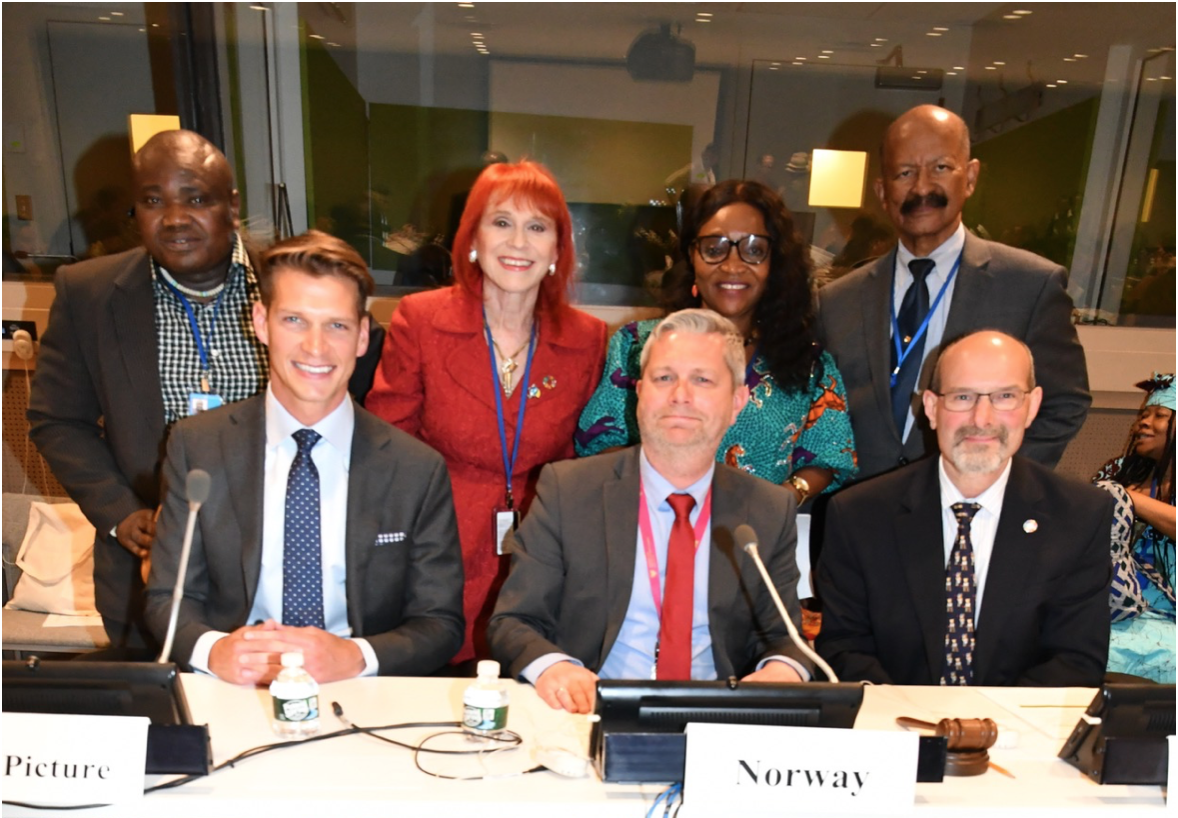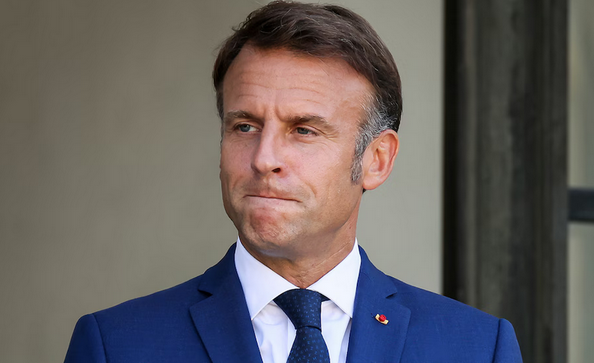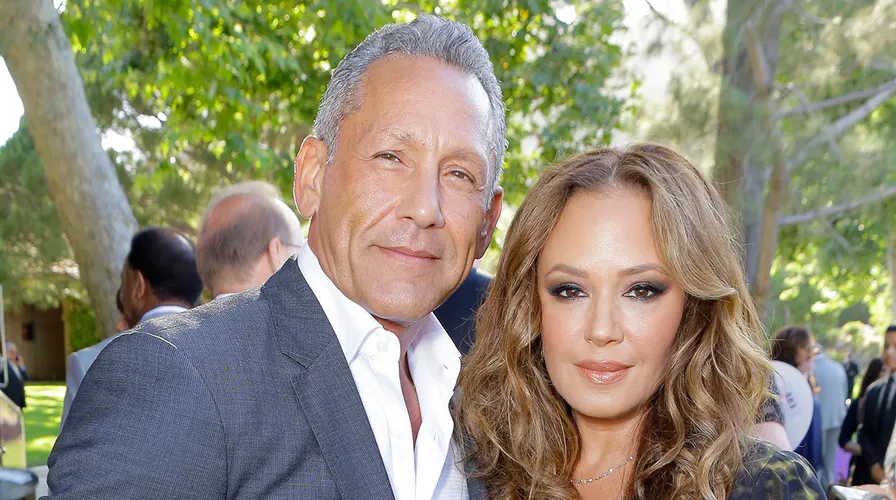The rights of persons with disabilities got a big boost from representatives of the World Health Organization, United African Congress, International Association of Applied Psychology and high level government officials from Norway, Georgia and Sierra Leone.
The triple trauma in Sierra Leone of the 11-year old war, the 2014-2015 Ebola outbreak, and the 2017 mudslide increased rates of disability, leaving survivors with hearing, speech, and vision impairments.
The government is doing something about that.
At an event at United Nations headquarters in New York City on 12 June during the Conference of State Parties on the Convention of the Rights of Disabled Persons, representatives from the Mission of the Republic of Sierra Leone to the United Nations and from the Embassy of Sierra Leone to the United States, among others, spoke out.
“Those of you who have been to Sierra Leone, will see a lot of amputees on our streets, because that was a tactic used by the rebel factions to intimidate the population…and mentally impaired persons owing to the traumatic experience the country went through,” said H.E. Victoria Mangay Sulimani, Deputy Permanent Representative of the Mission of the Republic of Sierra Leone to the United Nations.
Action to help have been taken.
Actions include ratification of the Convention on the Rights of Persons with Disabilities ten years ago. Relentless commitment to elevate the standards of health and wellbeing of persons with disabilities is already demonstrated..
“We already had in existence institutions such as special needs schools, hospitals, homes that provided for education and needs of the physically impaired, mentally challenged, and visual impaired as well as speech and hearing impaired,” explained Ambassador Sulimani.
“Of course, there is provision in our Constitution, in Article 8, that also provides for the promotion and protection of the rights of persons with disabilities.”
Also, the Disability Act of 2011 mandates free health care for people with disabilities, provides compulsory screenings at health care centers for early identification of people with disabilities and proscribes discrimination.
The Ministry of Social Welfare, Gender and Children’s Affairs is the lead ministry.
More recent actions are numerous.
A mid-term National Development Plan has been put in place for 2019 to 2023, centering on “Education for All” incorporating unprecedented visibility and inclusion of people with disabilities.
A Memorandum of Understanding was signed in April with the adjoining country of the Republic of Guinea to share best practices for the socio-economic and cultural empowerment of persons with disabilities in both countries, with technical teams of both countries in advanced stages of an Action Plan.
Also, plans are in place to repeal the antiquated Lunacy Act of 1902, that many non-governmental organizations in the country have called for.
Significantly, a foundation known as the Maada and Fatima Bio Foundation Sierra Leone which is the foundation by the President of Sierra Leone Julius Maada Bio, and his wife First Lady Fatima Bio are making efforts to improve the living standards for people with disabilities, with the creation of the Directorate for Persons with Disabilities.
H.E. Sulimani emphasized Sierra Leone’s commitment to cooperate with the international community and other key stakeholders to advance an inclusive society where no one will be left behind in the development process.
Also speaking on behalf of Sierra Leone at the event was Mr. Joseph Y. Fofanah, Administrative Assistant and Disability Coordinator representing the Sierra Leone Embassy in Washington DC. Himself a disabled person, Mr. Fofanah enumerated needs for the disabled including and made an impassioned appeal for donations of crutches, wheelchairs canes and educational materials (musical instruments, learning tools in Braille), as well as for volunteers to provide psychosocial counseling and trainings in various skills.
“We have disabled persons who did not go to school and are not educated, but who have skills and talents,” he said. “If we have partners who can empower them and train them, we can make a better world.”
“We also have disabled who can sing well,” he added. If we have someone who can empower them in the area of music, we can go higher and higher.”
On his wish list, a separate building in Freetown, to serve as a centralized secretariat that addresses all the services for persons with disabilities, with different departments for education, health and transportation.
The Sierra Leone delegation was considerable, including many who came to the conference from the home country, including from the Sierra Leone Ministry of Social Welfare, Gender and Children’s Affairs, Director of Social Welfare Mohammed Francis Kabia; from the Westminster Foundation for Democracy, Finance and Administrative Assistant Francis F. Solokor; from the Sierra Leone National Commission for Persons with Disability, Finance Manager Ibrahim Jimissa; and from the Sierra Leone National Commission for Persons with Disability, Chairman James Taiwo Cullen and Executive Secretary Saa Lamin Kortequee. First Secretary at the Mission of Sierra Leone to the United Nations, Linda Senesie also offered support.
In opening the week-long conference, United Nations Secretary General António Guterres admitted, frankly, that an earlier report commissioned for a comprehensive review of performance on disability inclusion, revealed “not a pretty picture.” Thus he announced the launch of the United Nations Disability Inclusion Strategy of Action to raise the standards of the UN’s performance on disability inclusion across the board “to bring about the unified and transformative change we need.” See: https://www.un.org/development/desa/disabilities/wp-content/uploads/sites/15/2019/06/secretary-general-of-the-united-nations.pdf.
The event at the UN, entitled “Reaching Higher Standards of Health and Well-Being through Cultural Engagement, Empowerment, and Inclusion” was meant to highlight examples of initiatives around the world raising awareness on achieving better health outcomes for those challenged by disability by presenting positive policies and innovative programmes including community projects and talents of persons with disabilities that foster inclusion in cultural life.
Co-sponsors included the World Health Organization (WHO), the Permanent Missions of Norway as well as the Republic of Sierra Leone to the United Nations, the International Association of Applied Psychology (IAAP), the United African Congress (UAC), and the Psychology Coalition of NGO’s Accredited at the United Nations (PCUN).
The co-organizers and co-producers were Eva Kiegele of the WHO office at the United Nations and Dr. Judy Kuriansky, representative of the International Association of Applied Psychology and the World Council for Psychotherapy to the United Nations, Trustee of the United African Congress and Psychology Professor at Columbia University Teachers College.
Dr. Kuriansky had been to Sierra Leone several times, to raise awareness about HIV/AIDS through radio shows, in collaboration with Search for Common Ground, and during the Ebola outbreak of 2014-2015, providing psychosocial support. Her book of lessons learned is “The Psychosocial Aspects of a Deadly Epidemic: What Ebola has Taught Us about Holistic Healing.”
In opening remarks, Mr. Werner Obermeyer, Executive Director Ad Interim, WHO Office at the United Nations emphasized WHO statistics that about 15% of the world population lives with some form of disability and that mental health, and depression particularly in youth and the elderly, will be the leading cause of disability worldwide by 2030. A recent survey showing that between 35% and 50% of people with serious mental disorders in developed countries and between 76% and 85% in developing countries did not receive needed treatment.
Speaking on behalf of the co-sponsoring United Nations Member State of Norway, Minister Jan Christian Kolstø, Vice Minister from the Ministry of Culture of Norway, reported a recent Norwegian study where half of individuals with a disability reported considerable mental difficulties.
“Combatting prejudice and intolerance is fundamental to my government,” he said, as well as holistic care, including physical, social, mental and economic support, participation in cultural life and sports activity.
He emphasized their Strategy for the Quality of Persons with Disabilities, especially addressing children and young people’s mental health, and a new 4th Action Plan focusing on mental health in women and children.
A video was shown, produced for the event, showcasing initiatives in Russia (by the Congress of the Union of Mental Health); community mental health centers in Georgia and by L’Arch, an organization of community living centers around the world; and an innovative public restaurant run by disabled persons at the Hadaf Rehabilitation Center in Rabat, Morocco.
Taped messages included from noted singer/songwriter and U.N. Messenger of Peace Stevie Wonder and the recent Tony Award winner for the musical “Oklahoma,” Ali Stroker, the first person in a wheelchair to win the coveted award. The video was produced by IAAP’s Dr. Kuriansky with assistance from IAAP representative Russell Diasey and edited by IAAP youth representative Joël Zinsou. See: https://youtu.be/30XVy4EYj8c
The country of Georgia was represented by Ms. Elene Agladze, Deputy Permanent Representative of Georgia to the United Nations, who described the “National Strategy and Action Plan” for her country for 2015-2020 that calls for a shift away from long-stay hospitalization to a balanced service, including community-based centers, crisis intervention centers, social services, and a mobile team of doctors and psychologists who visit patients at principal of ensuring treatment of anyone with mental disorder with respect in a human rights framework, providing access to care, and ending discrimination and stigmatization. Georgia has also increased its financial commitment; in 2008, the mental health budget was increased by 33% (about USD$2 million) to improve community care services.”
Georgian Psychiatrist Dr. Rouzi Shengelia, currently a psychiatrist at Bronx Lebanon Hospital in New York City, described the innovative “Mobile Crisis Team” where a team of health service providers goes to visit people at home for care. Georgian psychiatrist Dr. Mariam Menteshashvili, supported the claim that the program can be replicated worldwide.
In an exceptionally powerful testimonial that brought tears to many attendees’ eyes, Mr. Kade Clemensen, shared his mental health challenges as a child and attempt to end his life at the age of eight with his father’s gun. This act was in stark contrast to outward success in swimming and basketball sports and many friends and siblings. Parents, teachers, clergy, siblings, and friends need to know how to talk about suicide and mental health issues. Kade founded The BiiG Picture, an NGO that encourages open discussion by youth, parents, teachers and all others, in a safe space of empathy and love, to talk about mental health without stigma or shame, as if talking about the flu or a broken arm, and to encourage Access, Funding, and Education.
“We need to remind ourselves and children all around the world that it’s okay to open their hearts and share what they’re going through, and to remind ourselves to listen and offer support,” Kade said.
Kade was supported by his friend, Daniel Gimenez, Counsellor in Global Health, Education, Funds & Programmes, UNICEF, and Financing for Development, at the Mission of Norway to the United Nations.
In another account of a personal journey, Mr. Christopher Bailey, who founded the Arts and Health Programme at WHO, performed his monologue entitled “The Mark of Cane: Journey Into Blindness,” describing the gradual loss of his eyesight (to 5% of normal), and how he handled and overcame his disability,
49 million blind people and 249 million clinically low-sighted people are in the world, 90% of whom live in developing countries with little access to technologies.
Bailey interacts with audiences using smell and hearing.
“If I said something that made them laugh, or made them gasp, it had the effect through the echolocation of lighting up the room,” he explained.
The brain gets rewired. When visual information is reduced, the plastic nature of the brain collects the equivalent of visual information through other senses as smell, touch, taste, and hearing.
Thus, Bailey walks in a busy thoroughfare using the Doppler Effect of Ambient Sound Reflection, listening to the vanishing point of moving traffic to determine the physical dimensions around him.
To end his monologue, Bailey quoted the familiar phrase from the spiritual hymn “Amazing Grace”: “I was blind, but now I see.”
Attendees to the event included Richard Blewitt, Head of Delegation, Permanent Observer Delegation of the International Federation of Red Cross and Red Crescent Societies (IFRC) to the United Nations; President of the United Africa Congress Mr. Gordon Tapper; Broadway producer Pat Addiss; former students in the “Psychology and the United Nations” class at Columbia University Teachers College, Ran Fang and Candice Noble; and Maria Viola Sánchez, Fielding Graduate University and American Psychological Association Society for Media Psychology and Technology, who came all the way from California for the event.
In closing remarks, Dr. Judy Kuriansky commended the speakers on their brains and hearts, and acknowledged Norway, Sierra Leone, Georgia and other countries for innovative policy and programs that are ongoing in their nations.
She acknowledged four projects: the Visibility and Inclusion Strategy launched by the Secretary General of the UN at the conference opening; the “Health in Your Hands” platform launched at the World Health Assembly in Geneva in May, for those with least access; the WHO-approved Arts and Health program promoting cultural performances of people with disabilities; and the “Biig Picture” for youth openness.
She recommended:
- Emphasizing the importance of policies and a holistic and multi-level programs including cultural creations to support inclusion and dispel myths and stigma about persons with disabilities;
- Creating multi-stakeholder partnerships that include Persons With Disability;
- Moving away from institutions to community settings;
- Intentions for ongoing focus on “Reaching Higher Standards of Health & Well-Being through Cultural Engagement, Empowerment & Inclusion.”
Finally, she voiced collective determination to continue promoting Access, Visibility, Love, and Respect for all.
Photo caption (left to right, front row): Mr. Kade Clemensen, Executive Director, BiiG Picture; Vice Minister Jan Christian Kolstø, Ministry of Culture of Norway; Mr. Werner Obermeyer, Executive Director a.i., WHO Office at the United Nations; (back row): Mr. Joseph Fofanah, Disability Coordinator, Sierra Leone Embassy, Washington D.C.; Dr. Judy Kuriansky, International Association of Applied Psychology, World Council for Psychotherapy and United African Congress; H.E. Mrs. Victoria Sulimani, Deputy Permanent Representative, Mission of the Republic of Sierra Leone to the United Nations; Mr. Gordon Tapper, President, United Africa Congress.
BIO: Dr. Judy Kuriansky is a noted clinical psychologist at Columbia University Teachers College; NGO representative at the United Nations of the International Association of Applied Psychology and advisor to the UN Member States Group of Friends of Mental Health and Well-being; Trustee of the United African Congress and board member of Voices of African Mothers. She has hosted a U.S.-Africa Business Expo and the First Ladies of Africa Health Summit; co-developed a Girls Empowerment Camp in Lesotho; and provided psychosocial support worldwide, including in Sierra Leone during and after Ebola, chronicled in the book “The Psychosocial Aspects of a Deadly Epidemic: What Ebola Has Taught Us about Holistic Healing.”









